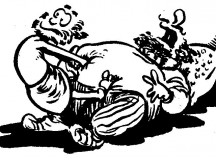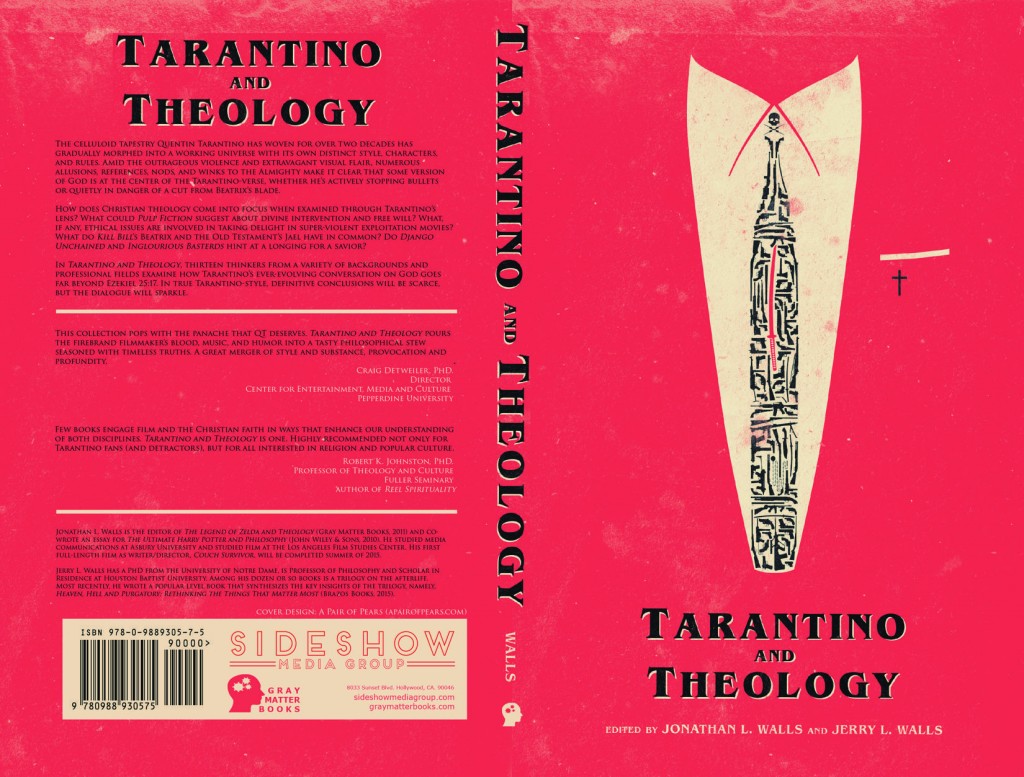Those of you who remember my last post on Tarantino and the Bible recall I asked what are really some silly and pointless questions. Maybe you were thinking, boy if this is how lame his questions are, should we even read the book he contributed to? Of course, my silly questions highlighted certain features that actually define a kind of media. The very modus of stories like Kill Bill is precisely the hero’s ability to be only sporadically touched by such “real-world” complications and inconveniences. The action-hero genre demands more than the normal suspension of disbelief expected in fiction. This type of story inhabits a universe we can term liminal. The liminal is the in-between world, the world between the empire and the new republic, with the revolution on-going; the world between the frontier and statehood, between conquest and kingdom, between apocalypse and New Jerusalem, between darkness and dawn. Historical, liminal eras occur between the collapse of one long-running social order and the rise of a new order. The  early middle ages in Europe and the “Old West” era in US history were liminal times, as was the period depicted in Homer’s Iliad and Odyssey, and the Old Testament books of Judges and 1 Samuel. Liminal eras tend to have conspicuous, common features, which I’ll illustrate from the book of Judges.
early middle ages in Europe and the “Old West” era in US history were liminal times, as was the period depicted in Homer’s Iliad and Odyssey, and the Old Testament books of Judges and 1 Samuel. Liminal eras tend to have conspicuous, common features, which I’ll illustrate from the book of Judges.
Moving from the book of Joshua to the book of Judges is a passage between different worlds. The world of Joshua is one of coherence. This generation of Israelites, born in the wilderness, tutored by Moses in the book of Deuteronomy, functions as an almost apostolic generation, an exemplar of an obedient community. All the promises and demands of the covenant between God and Israel are in full view. The book of Judges, however, comports a darker reality. The coherence of Joshua cracks, the covenant becomes tenuous, a generation rises that “does not know the Lord” and which abandons its God, serving almost any other god except their  own. God’s anger burns, not against godless pagans, but against his own people, his un-godded, or even over-godded, people. With the center broken, the line cannot hold, and the peoples surrounding Israel, smelling the blood in the water, always ambitious to seize control of the strategically vital territory of Canaan, move in with a vengeance, laying Israel low. Six times in Judges, a despairing Israel shrieks out to God in agony, who almost in violation of his own covenant, saves his people by raising up the heroes named in scripture as “judges.”
own. God’s anger burns, not against godless pagans, but against his own people, his un-godded, or even over-godded, people. With the center broken, the line cannot hold, and the peoples surrounding Israel, smelling the blood in the water, always ambitious to seize control of the strategically vital territory of Canaan, move in with a vengeance, laying Israel low. Six times in Judges, a despairing Israel shrieks out to God in agony, who almost in violation of his own covenant, saves his people by raising up the heroes named in scripture as “judges.”
Which brings us to my topic, the curious term in our English Old Testament, the word “judge.” This strangely unsuited word, combined with the gauzy, hyper-pious sheen of sanctity we cast over the biblical narratives in Judges,, a legacy of too many Vacation Bible School lessons given in bathrobes by youth-workers, causes us to miss the reality of exactly who these judges were.—To Be Continued




